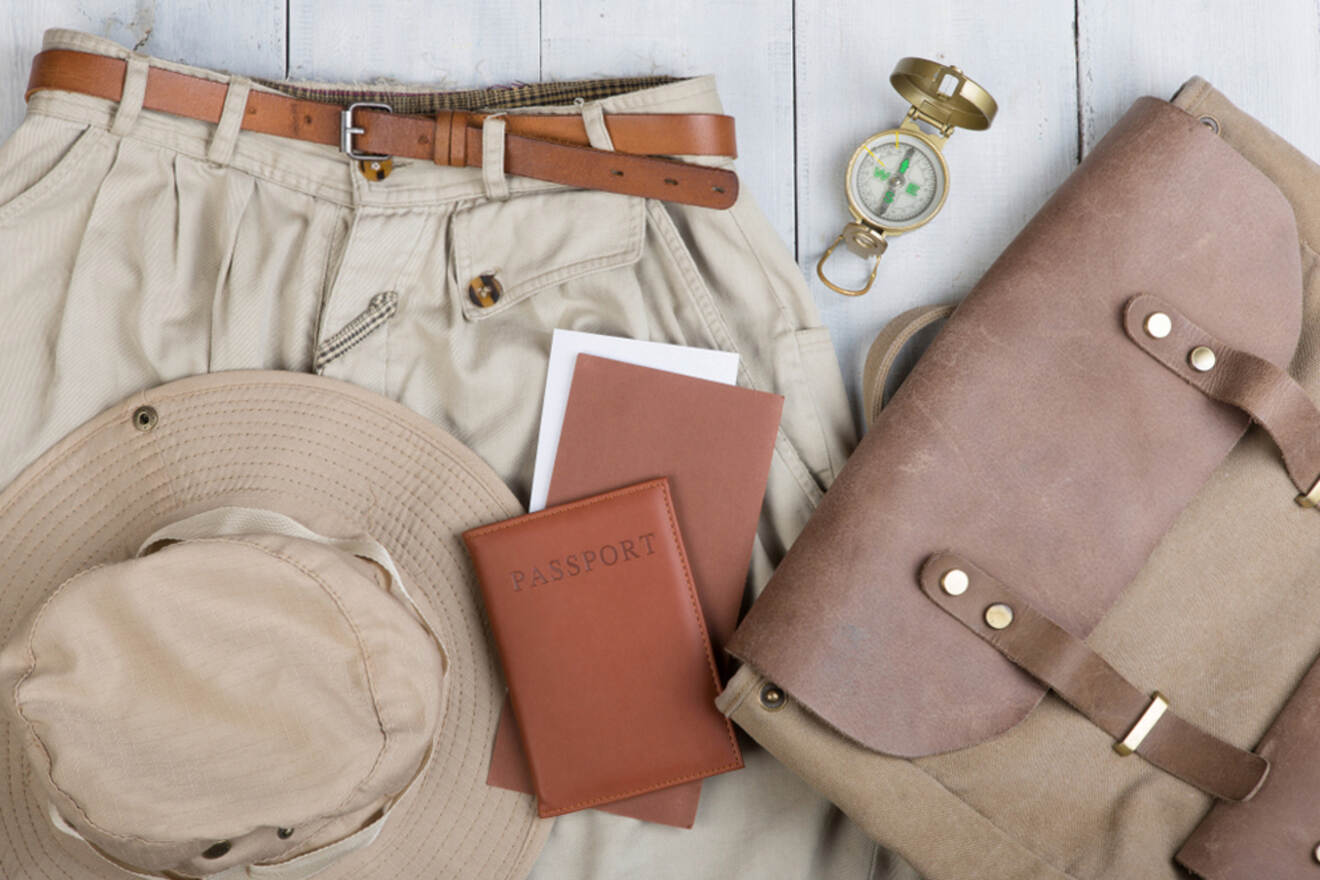
Going on a safari is a different kind of traveling than your regular trip, so you need to pack accordingly. But deciding what you need to pack for a safari can be confusing, even difficult – especially if it’s your first safari. Well, no need to worry! I created a comprehensive safari packing list containing everything you need to add to your luggage.
One of my lifelong dreams is to go on a safari, and I’ve done extensive research on what to bring. Better yet, I consulted a few Miss Tourist members who’ve been on a safari and got their advice! In this post, I’ll share the 23 safari essentials you’ll need, plus some other useful things to pop into your suitcase.
This packing list will answer your questions about what to wear for safari and what accessories you should get. It also includes a section on what not to bring – equally important!
If you’ve already booked your safari, let’s start packing!
Quick Picks for Your Stay
Here are the top 5 things to add to your packing list for safari:
Contents
23 Things to Pack for a Safari
From safari clothes to accessories and equipment, this list features everything you’ll need to pack for your safari.
NOTE: To simplify the list, I divided it into 5 categories – you can easily skip to the part you need the most!
1. Tops
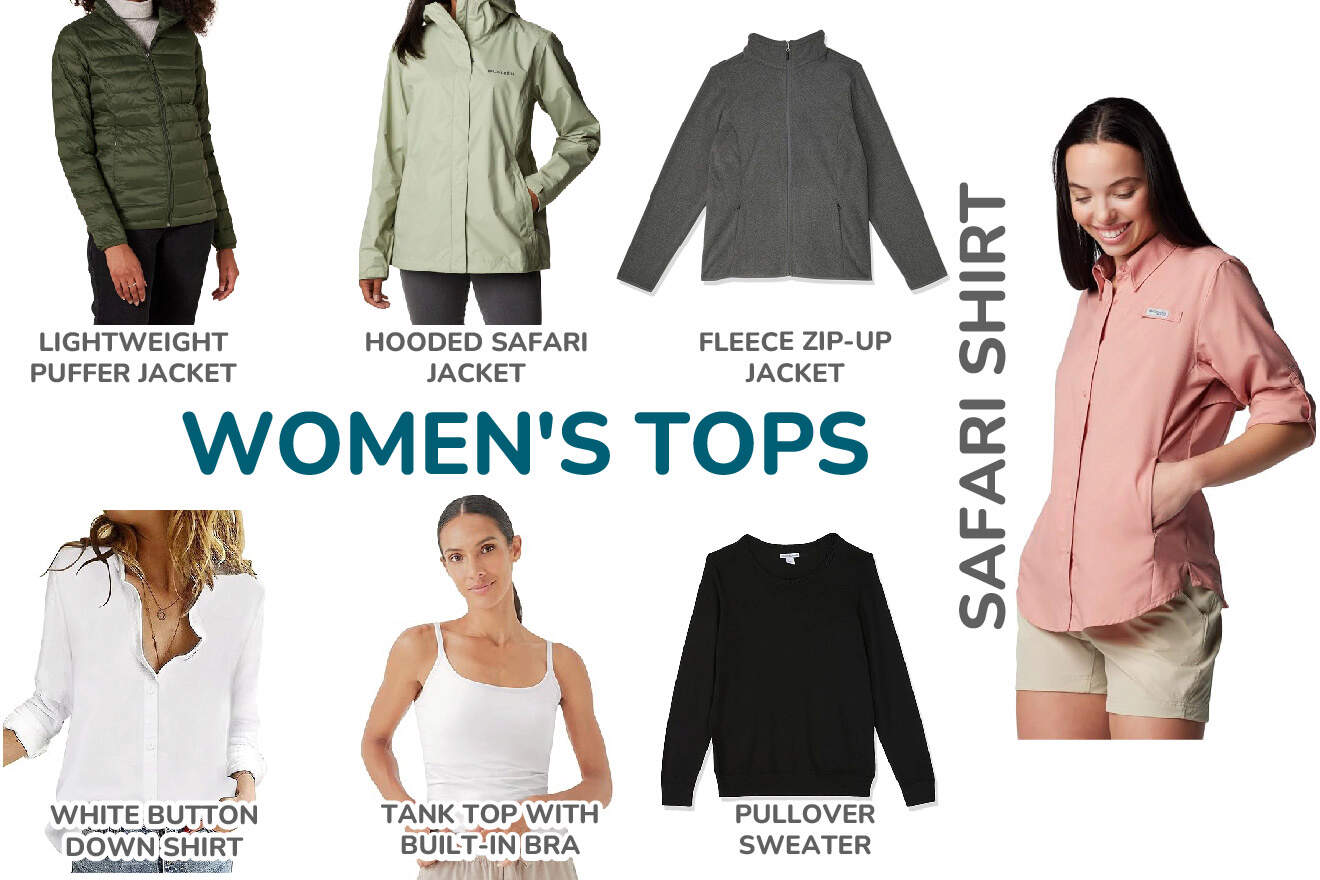
You’ll need specific clothes for safari, and we’re starting off with all the tops you’ll need to bring.
Safari shirt
A high-quality safari shirt will keep you sheltered from the sun and provide some bug protection. Always get a long-sleeve shirt made from sturdy material, and pick a neutral color (tan, brown, khaki, olive green).
There are plenty of good-quality shirts out there, but I really like Columbia shirts – and they offer both women’s and men’s shirts.
Hooded safari jacket
Wondering what to wear on safari evenings? The answer is a simple hooded jacket! Nights in the game reserves can get chilly, so don’t leave without packing a good hooded jacket. I emphasize hooded to ensure there’s something to keep your head warm.
I like this women’s long hooded jacket – it has a heat-protective lining and comes in a variety of colors. Tommy Hilfiger has this amazing option for safari men.
Fleece zip-up jacket
Besides your hooded jacket, you should bring at least one more – preferably a fleece jacket. I’d also recommend a zip-up one so you can wear it open when it’s not that cold. Not to mention that these types of jackets are super soft and comfy – perfect to curl up in!
You may have a fleece jacket lying around the house, but if you don’t, check out this soft fleece jacket for women or this men’s full-zip fleece jacket.
White button-down shirt
When you imagine yourself on a safari, you’re probably thinking of yourself wearing a casual white shirt. Well, you definitely need one. Besides being white, the shirt should be made from natural, breathable materials like cotton and/or linen.
Again, go for a long-sleeve shirt – take a look at this model for women, and I like this
for men. You’ll definitely need it for the hot days, but keep your sleeves down to avoid sunburn.
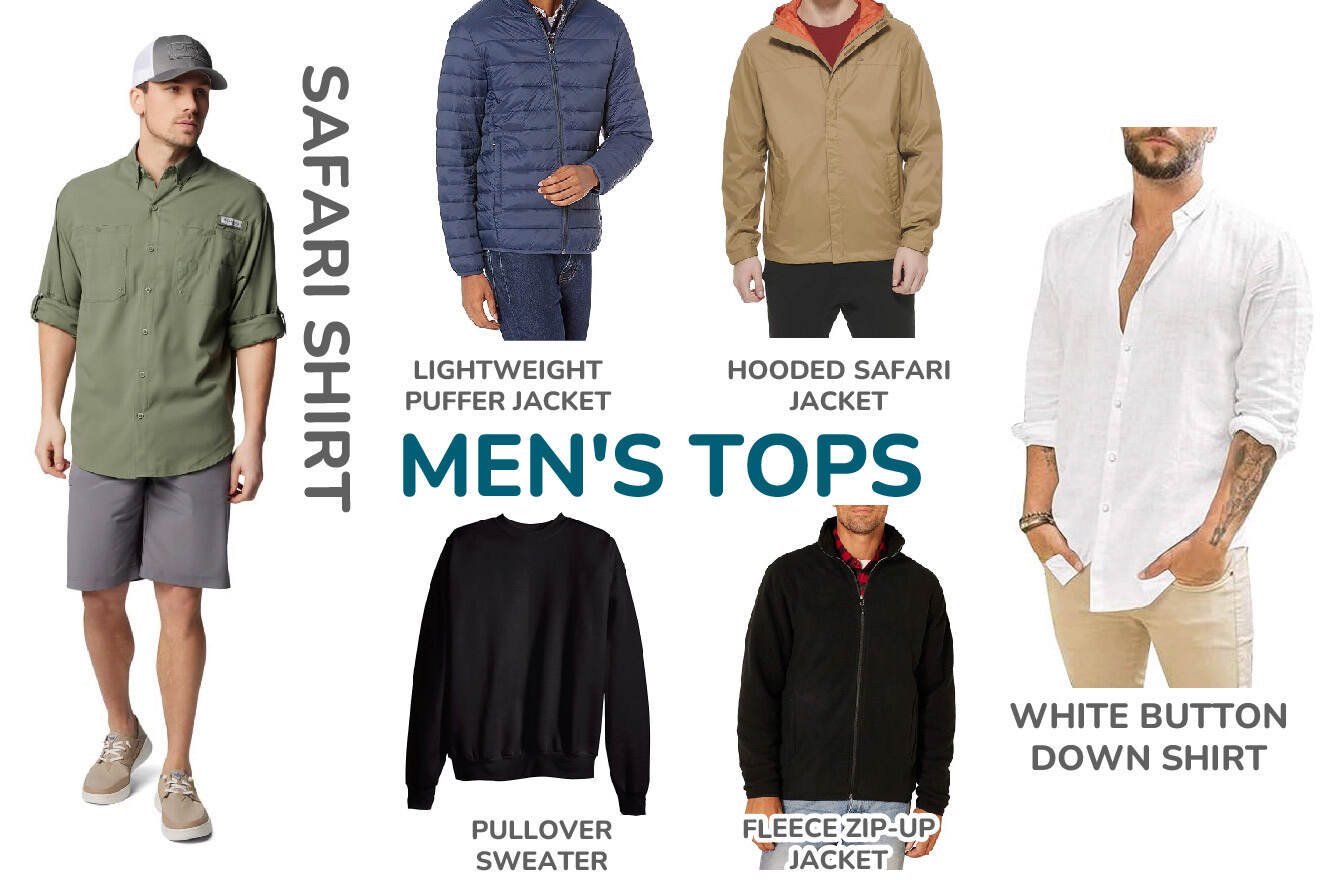
Tank top with built-in bra
When it comes to safari clothing for women, a tank top is a must. But what’s even better than a regular tank top is one with a built-in bra. If you want to escape the heat, a bra is the last thing you want; luckily, you can get a top and bra 2-in-1.
This tank top has a built-in shelf bra, is made from breathable materials, and has adjustable straps – it ticks all the boxes!
Lightweight puffer jacket
You may be thinking: another jacket? Well, yes. The nights get cold and windy, so it’s best to be prepared. Get one of those lightweight puffer jackets that don’t take up much space but are actually super warm and offer good wind protection.
If you don’t know what I’m talking about, take a look at these packable puffer jackets for women and men. They’re very affordable and easy to pack – don’t risk not getting one!
Pullover sweater
The final piece of clothing in the ‘Tops’ category is a regular pullover sweater. If you’re just a little cold, just pop it over your head and keep exploring. And if the night is extra cold, you can wear it under the jacket – you’ll be welcome for the layers.
Any pullover shirt with work, but if you don’t have one lying around, I recommend this lightweight crewneck for women and the Hanes crewneck for men
2. Bottoms
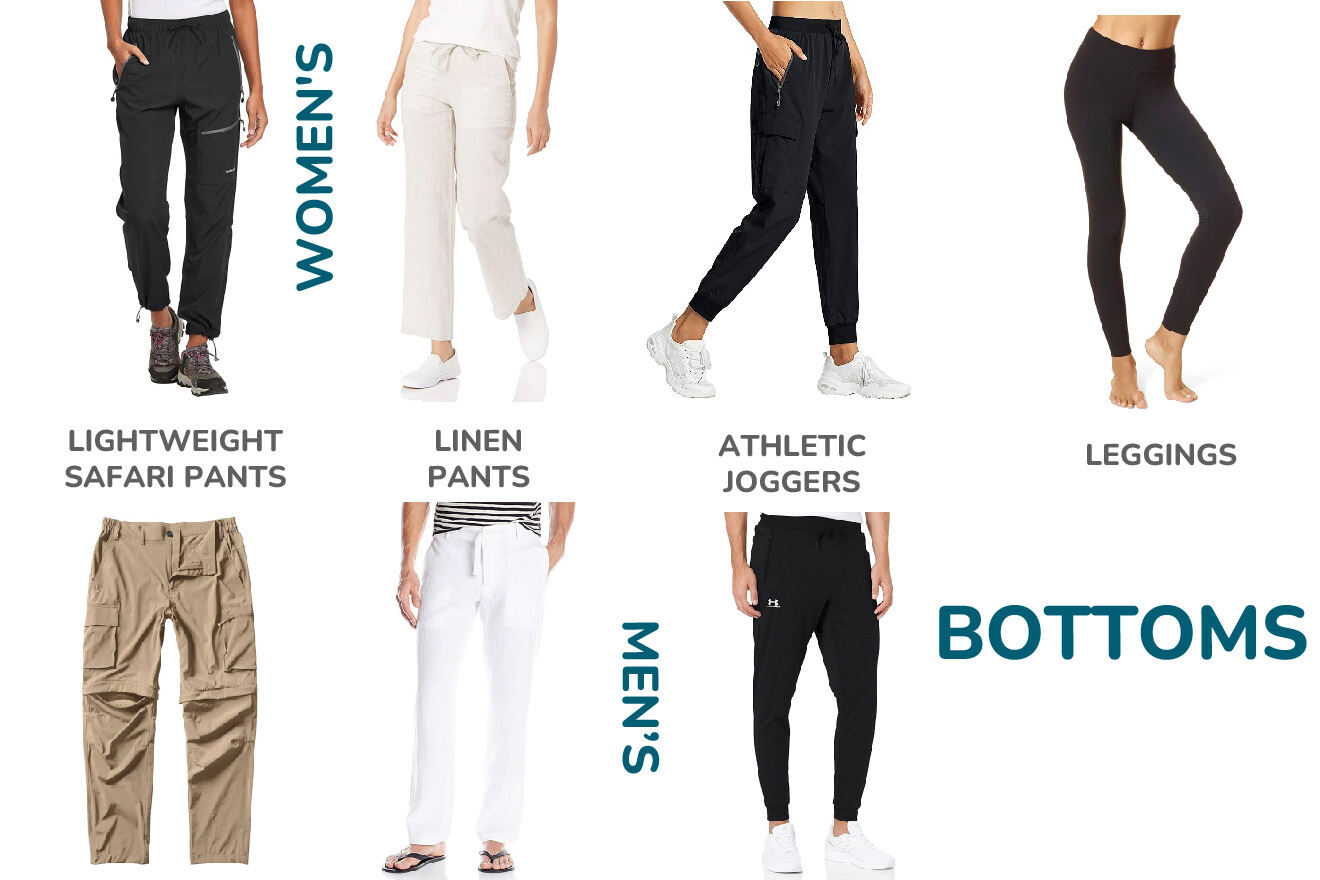
On to more safari clothing – the bottom part of the wardrobe! Even though it seems like more than you might need, trust me, you’ll thank me later!
Lightweight safari pants
Investing in a good pair of safari pants is a must! When picking out a pair, look for ones that are waterproof and quick-dry and, if possible, convertible. By choosing convertible pants, you get long-leg and short-leg pants in one.
For the ladies, I found this model by BALEAF, and these waterproof, quick-dry pants are a great choice for the lads.
Linen pants
If contemplating what to wear on a safari, you mustn’t forget about linen pants. They’re lightweight, breathable, and very comfortable. Go for a pair in a light color – white or tan.
For our female readers, I chose these drawstring wide-leg pants, while the Perry Ellis casual pants are an amazing choice for men.
Leggings
Another great piece of clothing for all female safari-goers – leggings! As any woman knows, leggings are extremely comfortable and practical. And they barely take up any space in the suitcase.
If you don’t already have a trusted pair, I found this amazing option by HUE; they’re cotton with a touch of Spandex, so you can be sure they’ll fit your body perfectly.
Athletic joggers
The last place (although not less important) goes to joggers. You’ll need something comfy to wear while in the lounge/camp, and there’s nothing better than a pair of joggers.
Gals, I’m sure you’ll love this great option from Libin, and guys, I think you’ll like this model by Under Armour.
3. Footwear
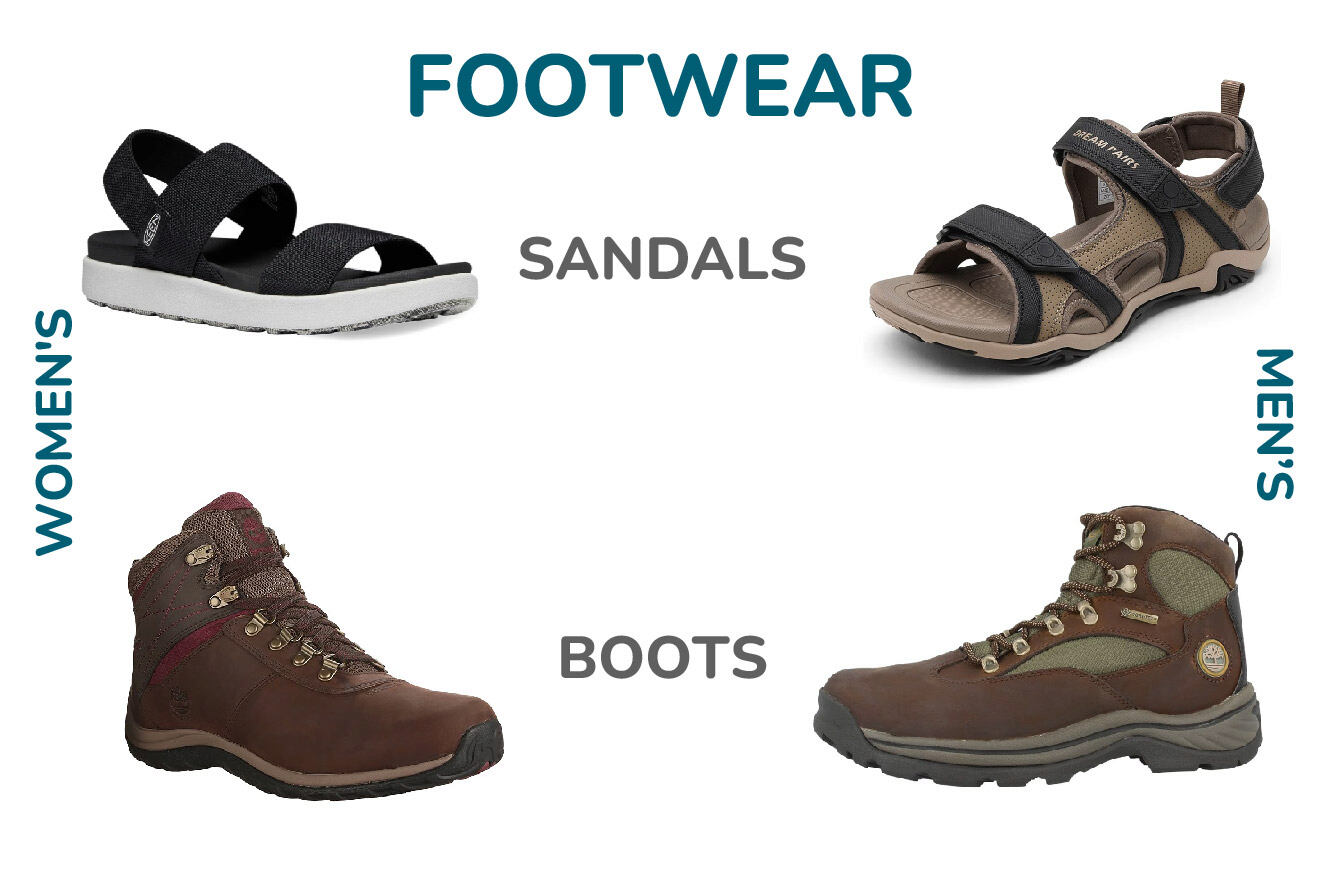
You didn’t think I’d forget about footwear? It’s one of the most important pieces of apparel while you’re out on safari – so let’s see what you need.
Boots
While exploring the game reserve, you’ll need to wear comfortable boots. You can never go wrong with Timberlands – they have great options for both women and men.
TIP: Travel with sneakers! Wear comfortable footwear (sneakers) on the flight to/from Africa and the trip to the lodge/campsite.
Sandals
Don’t worry about spending all your time in boots! Pack a pair of sandals you can wear around the lodge. This will give your feet time to relax before your foray into the wild.
I love these casual sandals for women and these are great for men!
4. Undergarments
Another thing to take on a safari is comfortable undergarments – just like the rest of your clothes; the undergarments should be comfortable and feel light on your skin.
Breathable bra

Women really need to pay attention to picking a comfortable bra. For example, this Bali bra doesn’t have any wires. Plus, it has no slip straps, and most importantly, it wicks moisture!
Moisture-wicking briefs
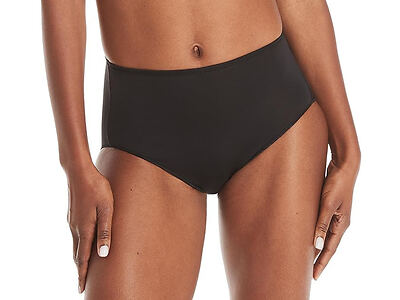
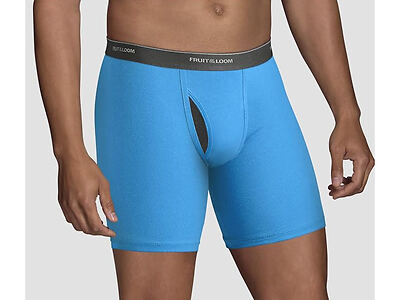
Just like the bra, the briefs should be moisture-wicking. This is important because you’ll sweat and don’t want to spend the entire day feeling uncomfortable.
If you don’t already own such briefs, Hanes offers some great models for women, and Fruit of the Loom has a large selection for men.
Bathing suit
You’ll only need a bathing suit if the lodge you’re staying at has a pool! And you can bring the one you already have! If you’re going camping or your lodge doesn’t have a pool, you don’t need to pack a bathing suit.
5. Accessories
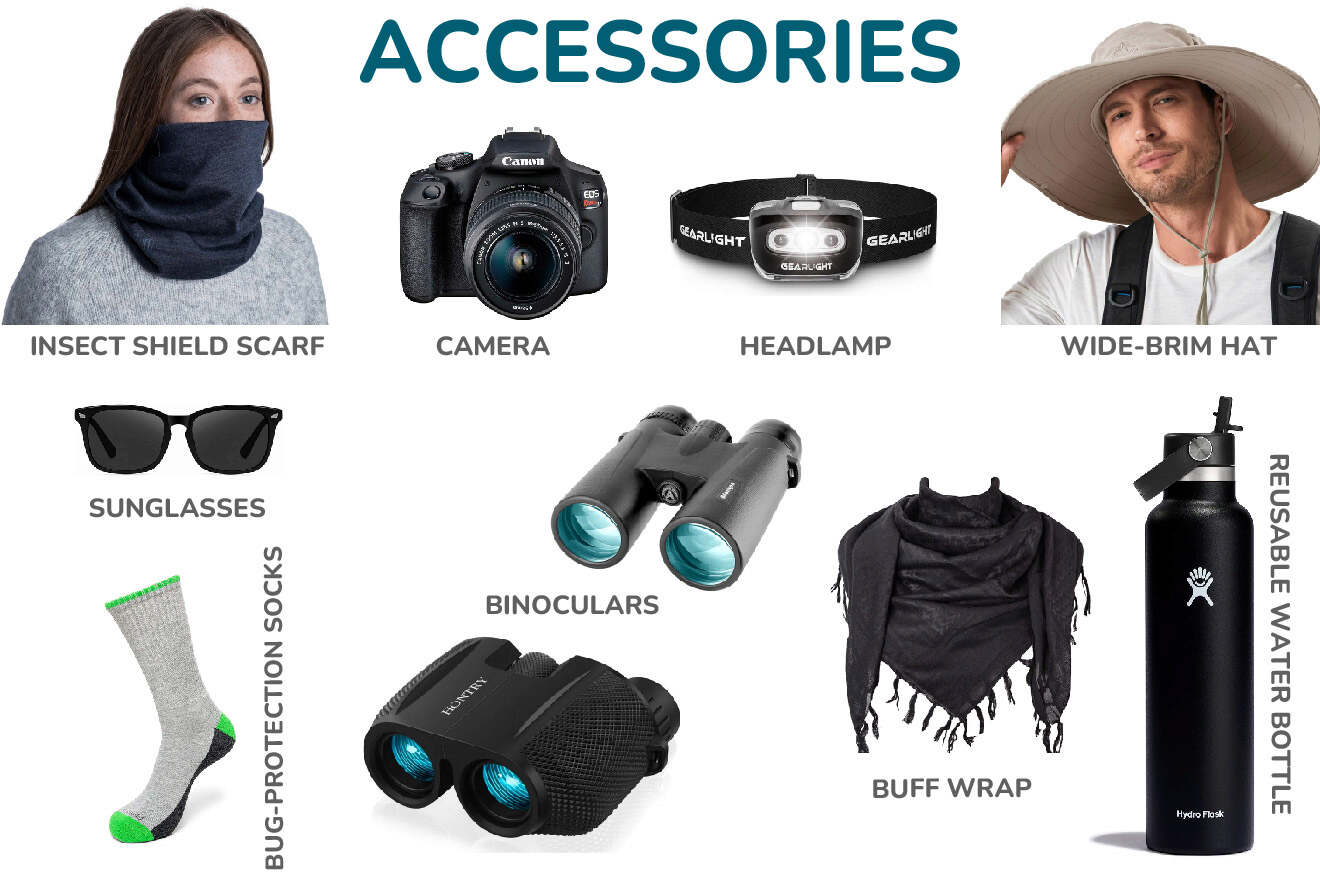
No trip would be complete without some accessories, and a safari is no exception.
Sunglasses
The sun will be shining bright, so sunglasses are a must! You probably already own a pair, but you should ensure they have UV protection, like these unisex glasses.
Wide-brim hat
Don’t go anywhere without a hat! It’s important you choose a comfy hat that won’t feel too tight on your head and has a wide brim to protect both your face and neck.
I really like this unisex Cooltto hat for its super-wide brim and the breathable and waterproof material.
Buff wrap
Yet another thing you’ll need while you’re out in the wild is a buff wrap! This will protect your face and neck from the sun, but also from breathing in any dust.
The brand BUFF offers an excellent product that’s very versatile and can be used on various occasions.
Insect shield scarf
Insects are something to keep in mind when going on a safari. Although there’s nothing you can do to protect yourself from insect bites fully, an insect shield scarf is a great way to protect your face.
I found this desert scarf made from 100% cotton, so you can breathe through it and not feel too hot.
Bug-protection socks
As I mentioned, you can’t fully protect your entire body from insect bites, but these socks provide protection from insect and tick bites – your feet will be safe!
Binoculars
Everyone from the Miss Tourist team who’s been on a safari agrees on one thing – you absolutely need binoculars! Your safari organizer might provide you with some, but if they don’t, you’ll need to bring your own!
The Adorrgon binoculars are amazing, but if you want something smaller and more affordable, the Hontry binoculars are also a great option.
NOTE: If you’re going on a camping safari, also bring a headlamp! Some campsites may provide them, but be sure to check before you go.
Reusable water bottle
Staying hydrated on a safari is extremely important. The best way to ensure you drink enough water is to bring your own reusable water bottle.
If you don’t already have a high-quality reusable bottle with good insulation, this is my favorite reusable water bottle. I keep recommending it to everyone – it’s THAT good.
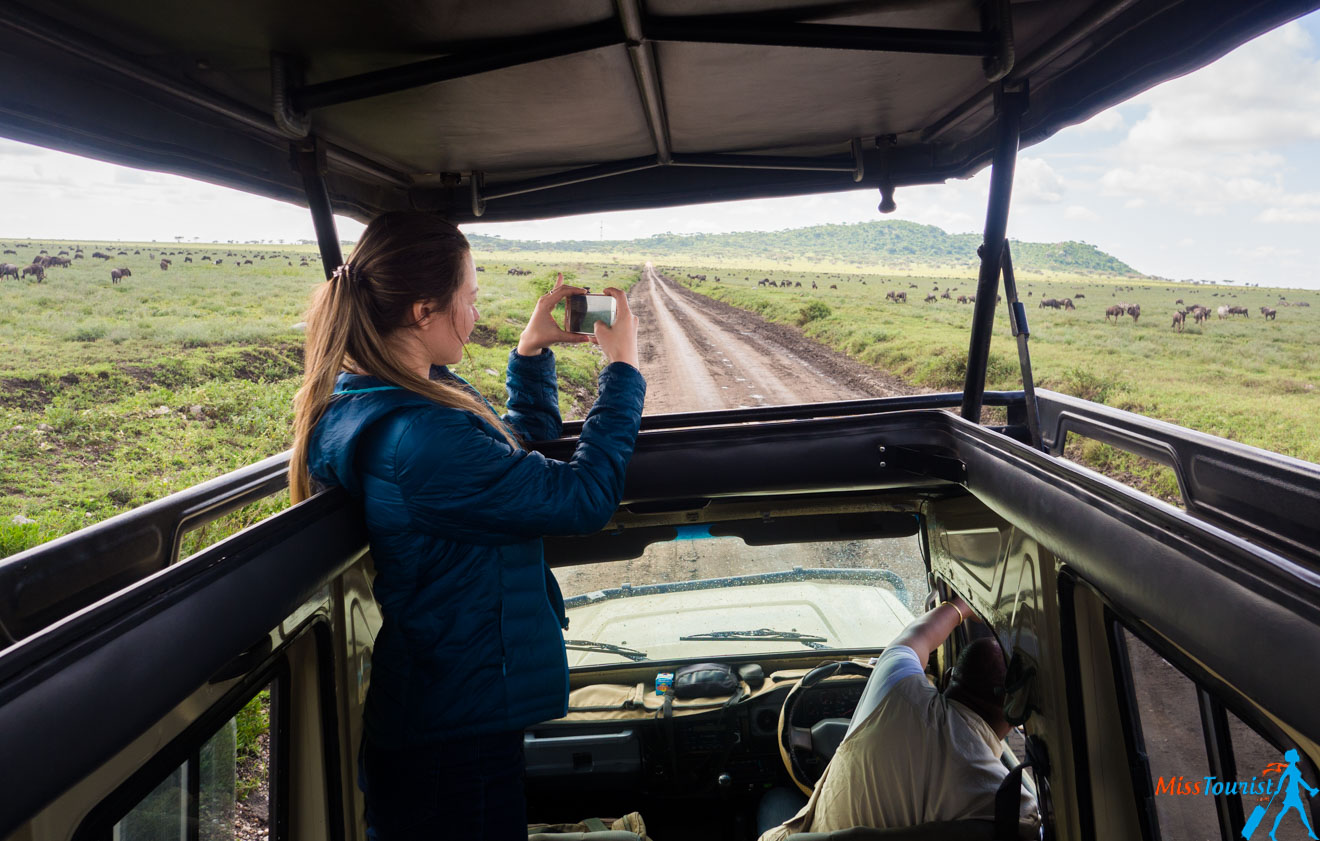
Camera
Two of my coworkers who went on a Tanzanian safari both talked about bringing a camera with a zoom lens. They say that getting good pics of the animals is impossible without the lens – unless you get too close to them, which is not advisable.
After some Internet sleuthing, I found that the Canon EOS Rebel is an amazing choice for your safari needs. It has a zoom lens, fast autofocus, and produces high-quality photos (and videos).
TIP: If you don’t want to buy a camera for the safari, you can often rent one from the safari provider.
6. Other essentials to bring along
Once we’ve gone through all the clothes and accessories you’ll need for your safari, there are a few more things that you need to pack.
Below, you’ll find 3 lists with all the small essentials you’ll need for your safari.
First-aid kit
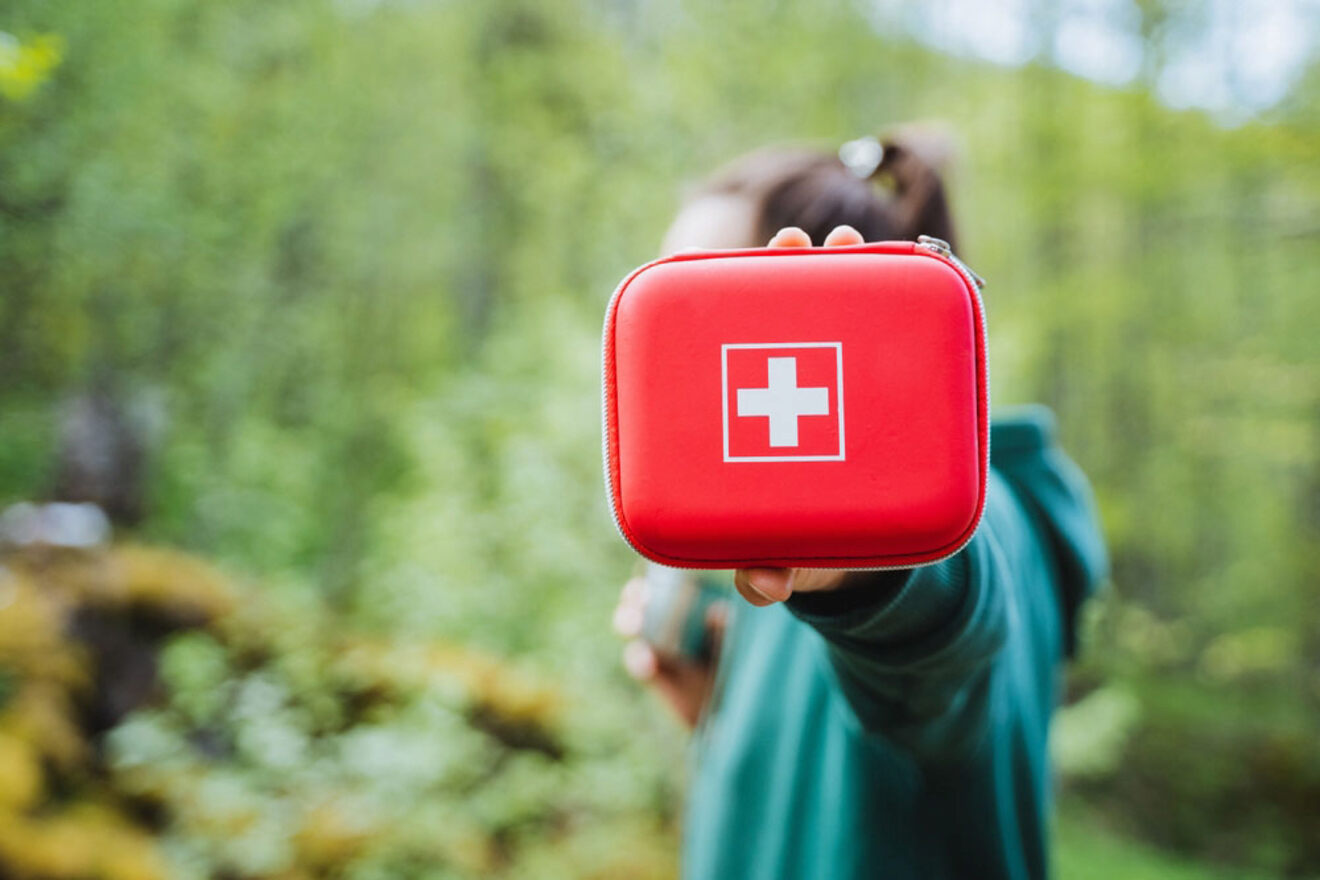
Regardless of where you’re going on a safari, a first-aid kit is a must-have. And unless the safari organizer provides everything, you’ll need to bring your own.
However, you need to determine exactly what you’ll bring based on the destination. For example, you won’t need malaria tablets in every African country. So, do some research and pack accordingly!
Here’s a very general list of things to add to your first-aid kit:
- Malaria tablets
- Antihistamine tablets
- Anti-nausea tablets
- Pepto-Bismol and antacids
- Flu medicine
- Basic medical kit (aspirin, band-aids, antiseptic /anti-histamine cream)
Toiletry Kit
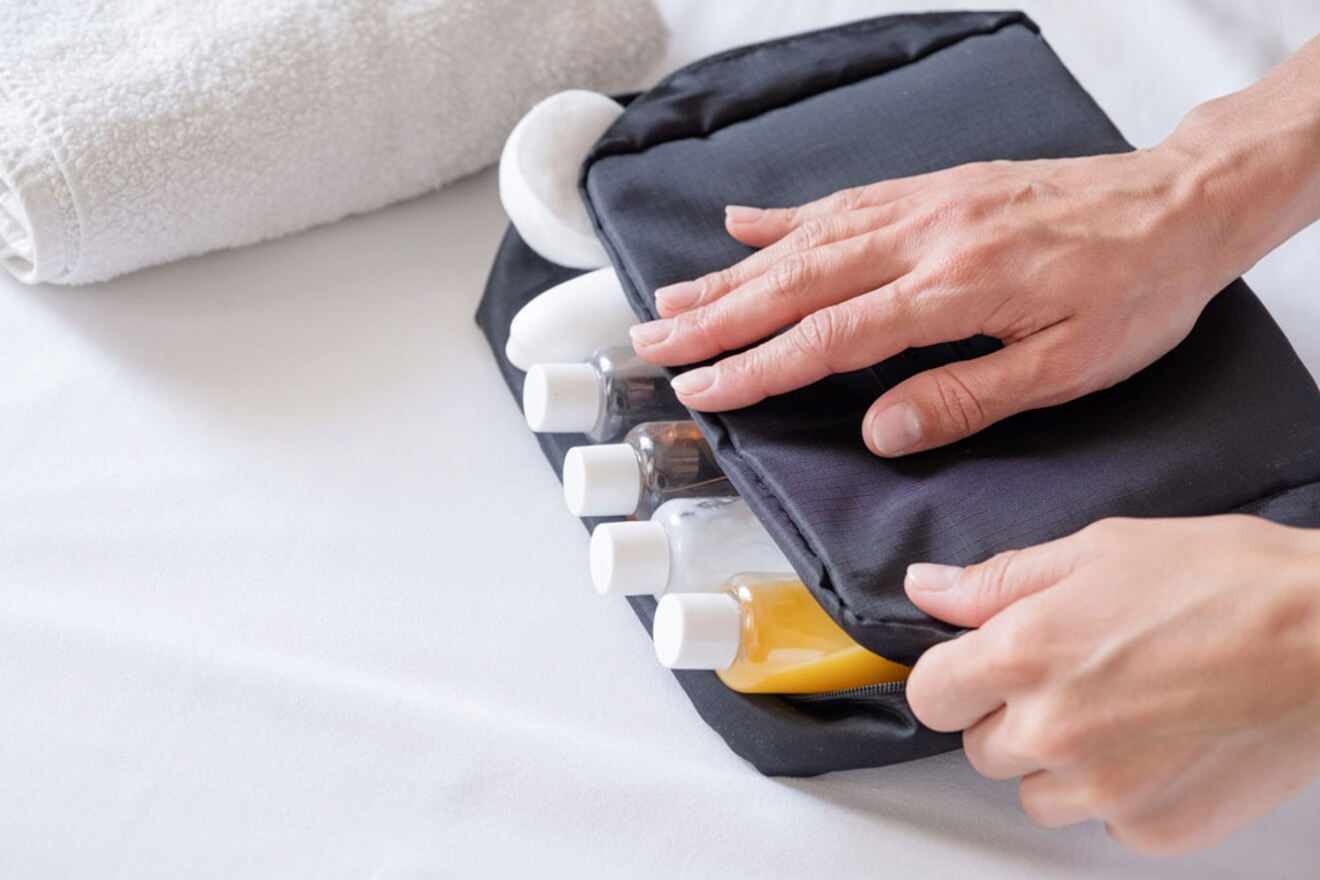
Unlike the first-aid kit, the toiletry kit is universal – you need all of the items listed below, no matter the exact destination.
- Moisturizer and SPF lotion
- Insect repellent
- Bug cream
- Tissues/Wet wipes
- Toothpaste and toothbrush
- Hairbrush/comb
- Nail scissors/clipper
- Earplugs
PRO TIP: For maximum protection against insects, I recommend getting insect-repellent bracelets! They’re very convenient – you slip one on, and you’ll keep the insects away.
Basics
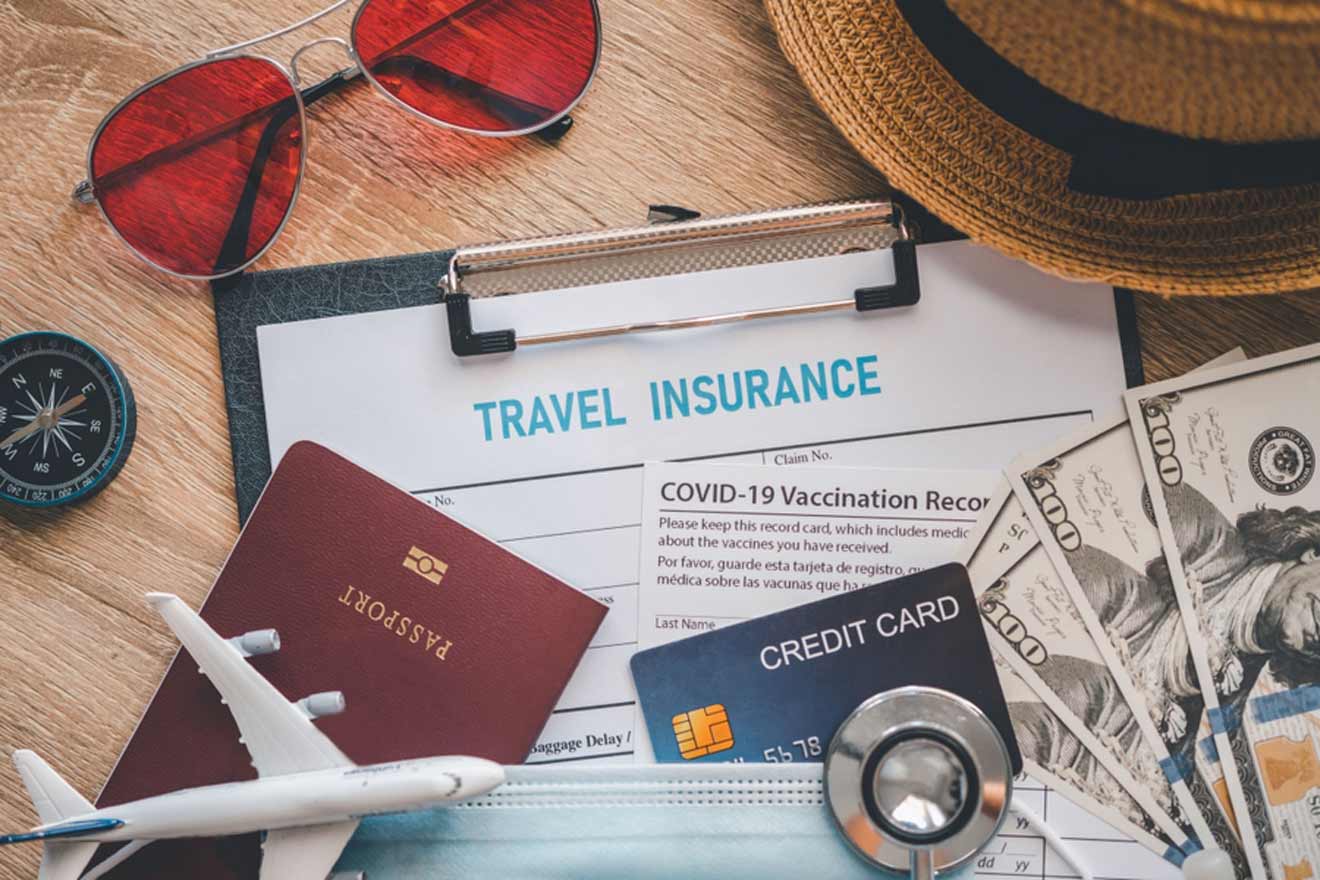
Finally, let’s not forget about the basic things you need for (almost) every trip. This includes all the documents you’ll need and some other useful items.
- Passport
- Travel Insurance
- Cash and credit cards
- Vaccination card
- Plane tickets
- Power bank – I love this one; it works great!
What not to pack for a safari
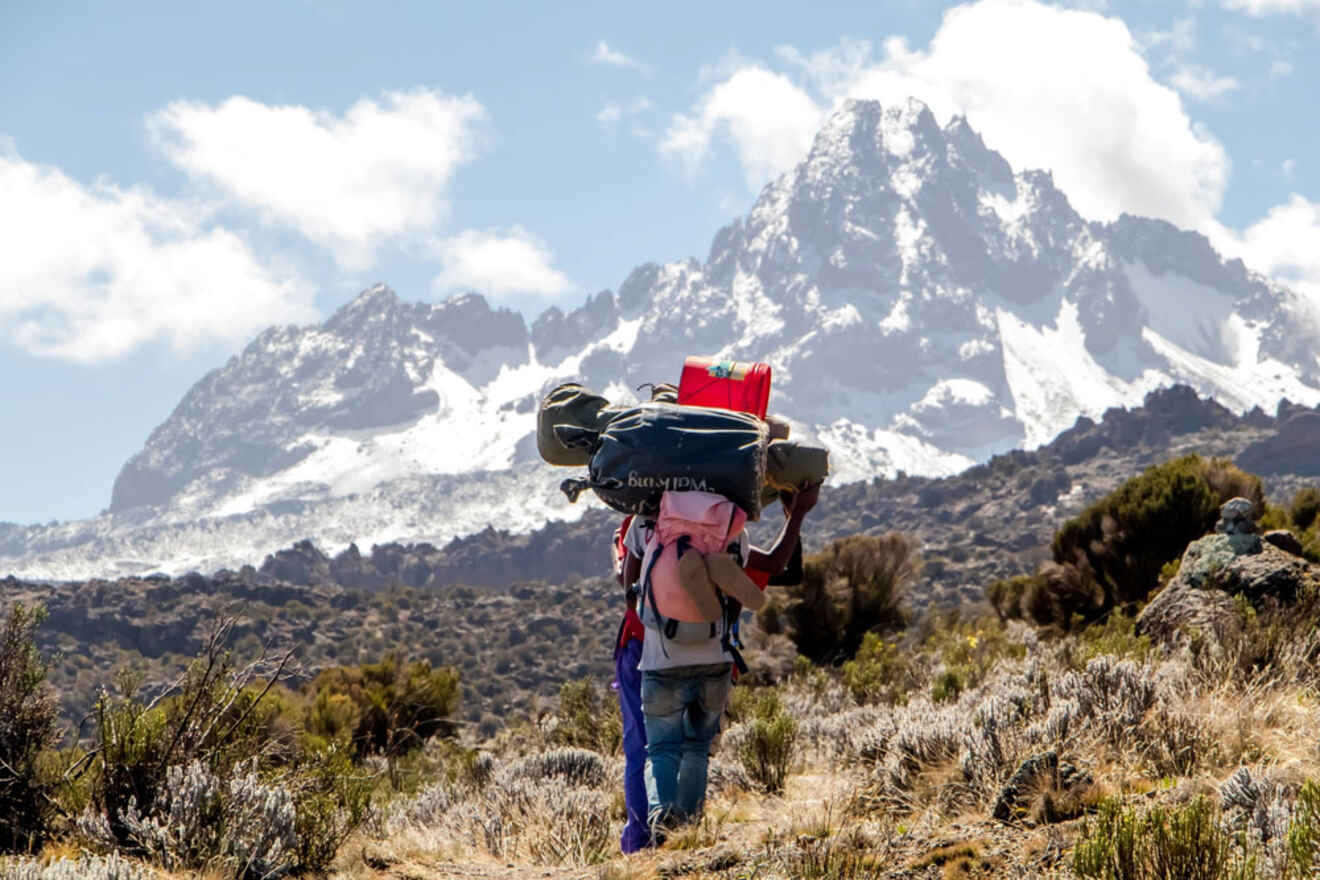
Now that you know what to take on safari, I have to warn you about the things you can’t take. Read through the sections below to see why you shouldn’t bring any of these items.
Plastic bags
Plastic bags are forbidden in many countries in Africa, and you definitely shouldn’t bring them into the game reserve. The lodge/campsite will provide you with alternatives.
Camouflage clothing
Just like plastic bags, camouflage clothing is illegal for civilians in some African countries. And not just for safari – you shouldn’t wear camo clothing when exploring African towns, as your intentions might be misconstrued.
Hair dryer
You might be tempted to pack a hair dryer, but most campsites and even some lodges can support the electricity required to power a hair dryer. You can just let your hair dry off naturally!
Drone
Most national parks in Africa strictly prohibit the use of drones. Poachers use drones to track the movements of animals, and you don’t want your drone to be confused with one of theirs.
Non-biodegradable beauty products
Lastly, you shouldn’t bring any non-biodegradable beauty products, as they can pollute the environment and damage the ecosystem. The ecosystem is extremely important for the well-being of the animals living there – you don’t want to be responsible for endangering these protected species!
Subscribe here to get up to 35% off your accommodation for your next trip!
FAQs about packing for a safari
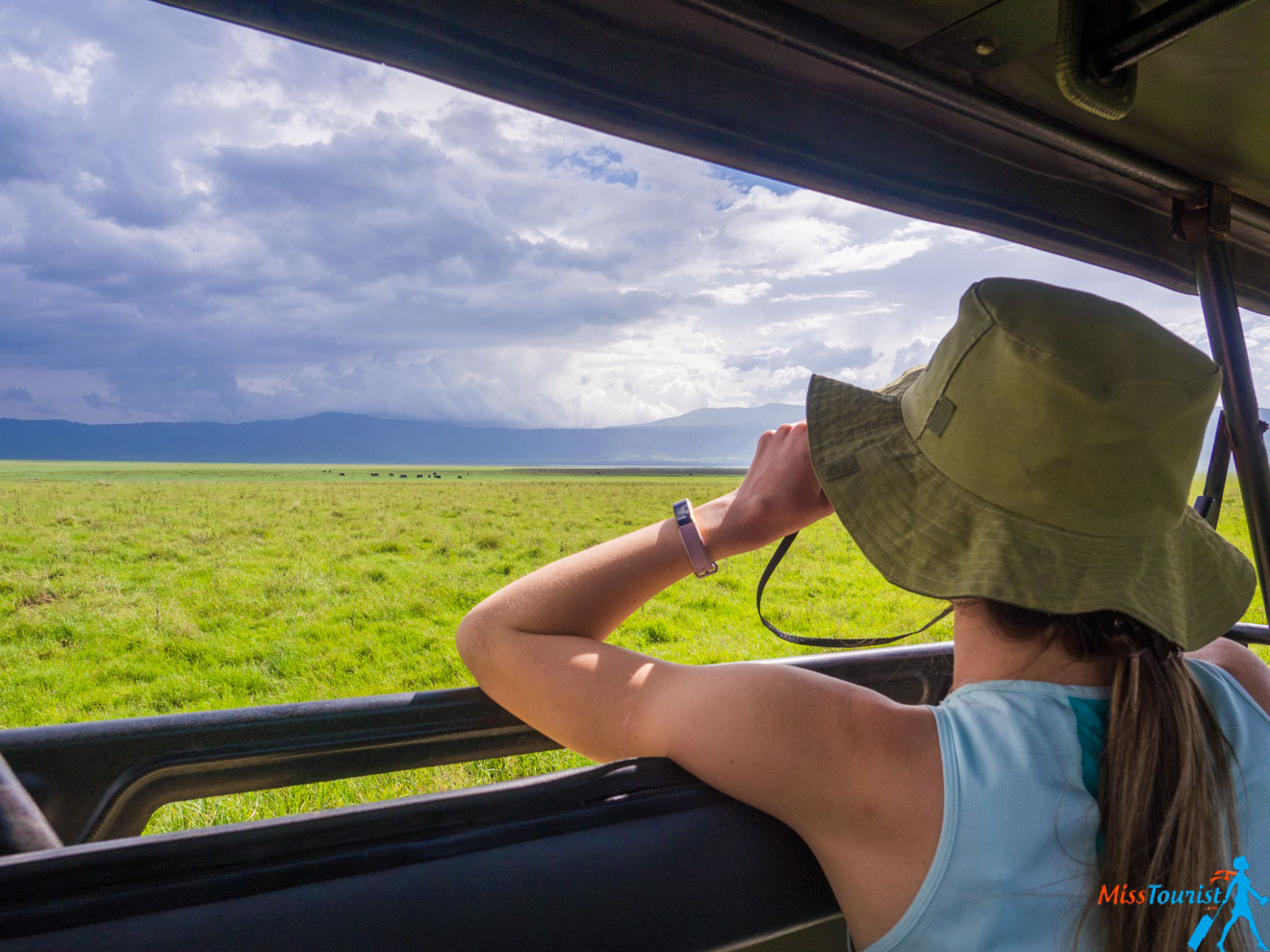
🧳 What is the best bag to take on a safari?
The best bag to bring on your safari is a soft duffel bag like this one. It’s big enough to fit everything you need, adds almost no weight to your luggage, and you can easily carry it across your shoulder.
📷 What equipment is needed on safari?
The main pieces of equipment you need to take on a safari are a camera with a zoom lens and binoculars. For a good camera, I’d recommend the Canon EOS Rebel, and for a good pair of binoculars, I selected the Adorrgon binoculars.
👚 What clothes should I wear on safari?
While on safari, wear pants and shirts in natural colors (white, tan, brown, green) made from natural, breathable materials. You should also wear comfortable boots and a wide-brim hat.
🫧 Can you wear perfume on a safari?
No! You shouldn’t wear any perfume on a safari, as it may chase away the animals. Every animal is super sensitive to smells, and they are turned away by any artificial smells.
❌ What color not to wear on safari?
On a safari, don’t wear dark colors like black and deep blue, as well as bright colors like red. Instead, wear clothes in khaki, brown, beige, tan, or even olive green.
Final words on packing for a safari
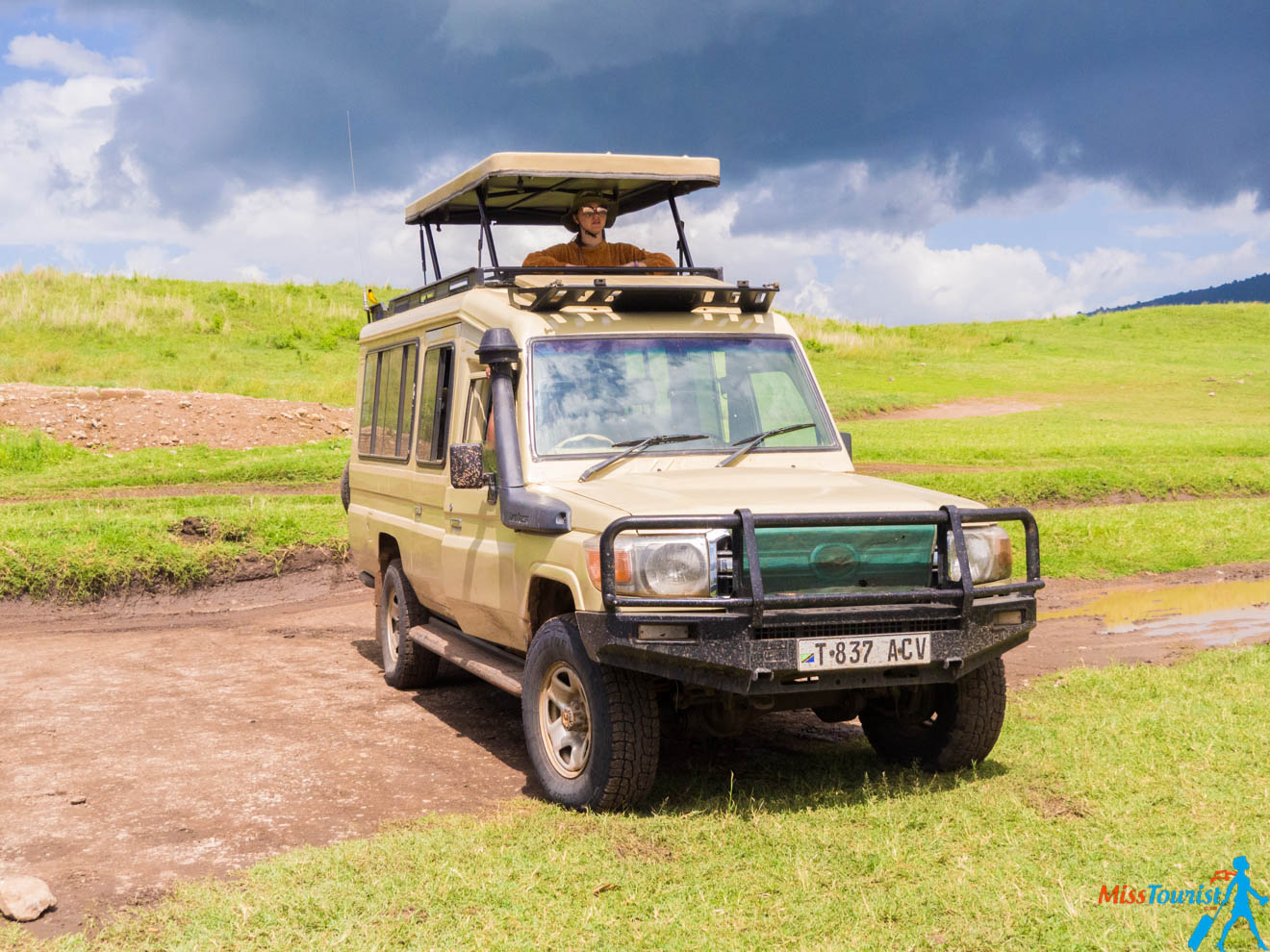
Well, we’ve reached the end of this safari packing list! Now, you should know exactly what to pack for safari, as well as what not to bring.
Each item on this list is equally important for a pleasant safari experience, so I can’t single out one you could do without. You probably already own some of these things, so you’ll just need to get what you’re missing before you embark.
To make things easier for you, I created a packing list for safari on Amazon, so you can see all the things I recommend in this article in one place.
If you have any questions or concerns, leave them in the comments! I’m happy to reply and help with your packing list!
Enjoy your safari,
Hristina
Pin it for later!
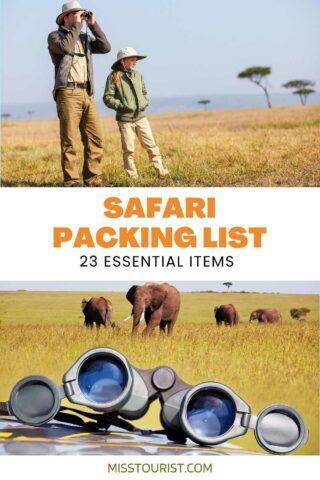
Pin it for later!
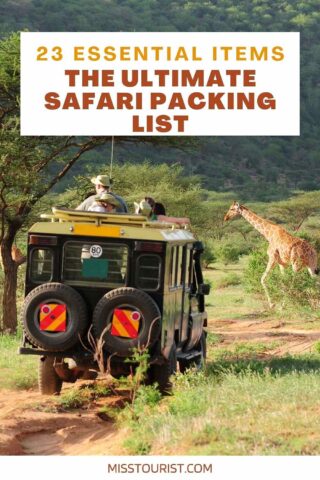

 Hristina Lozanovska
Hristina Lozanovska 






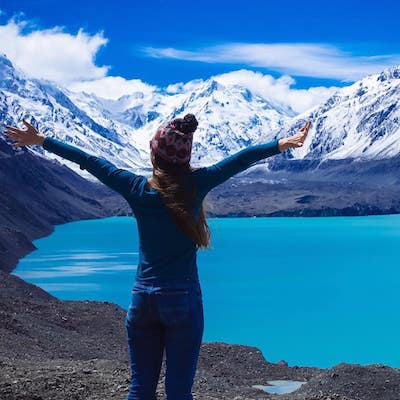
This site is protected by reCAPTCHA and the Google Privacy Policy and Terms of Service apply.